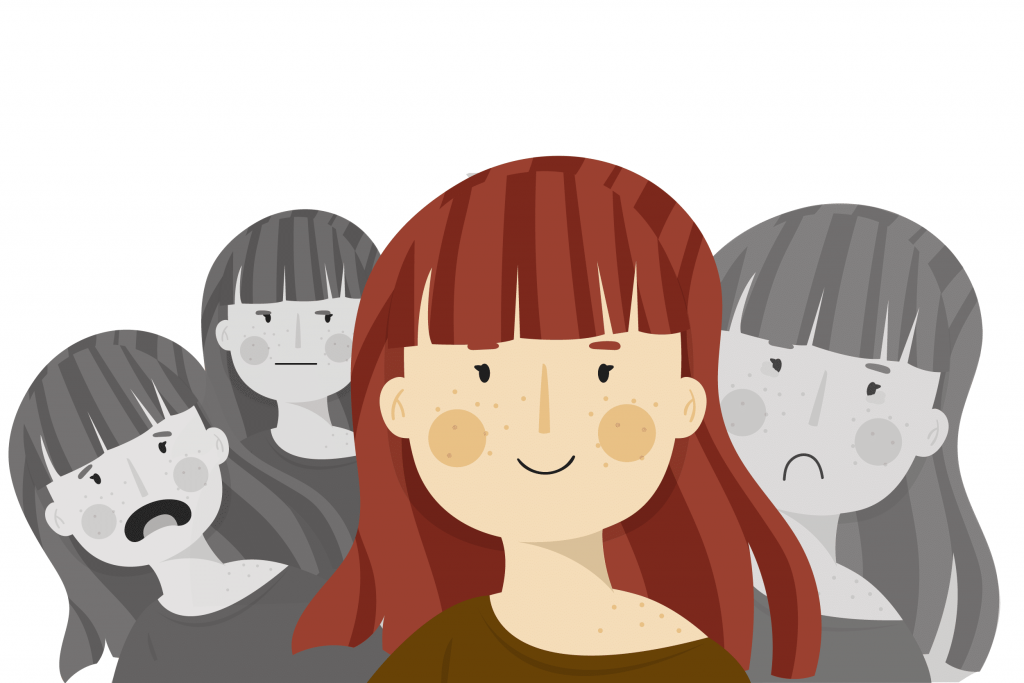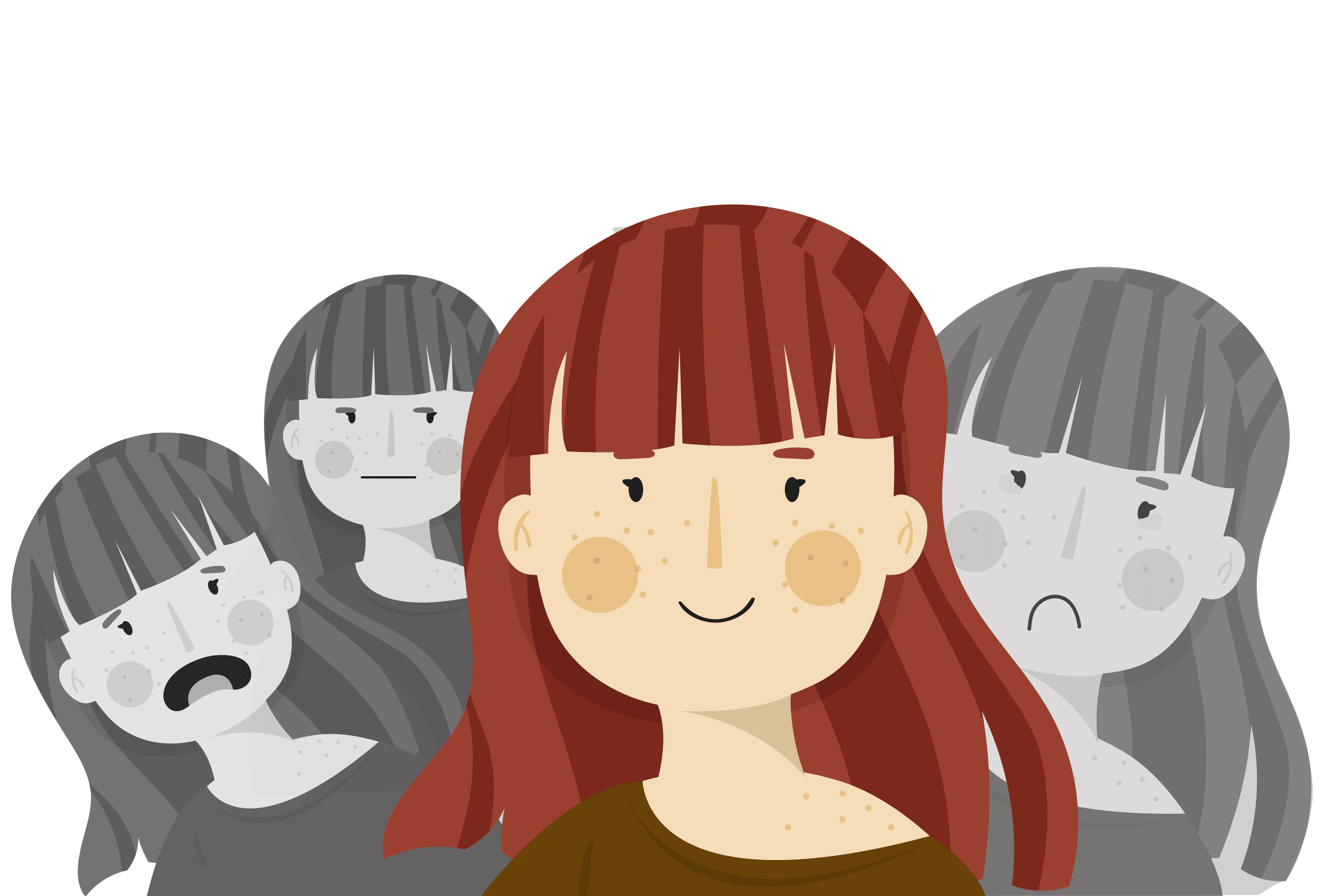
Bipolar disorder is a lifelong mental illness that causes your emotions to change erratically leading to mood swings including mania (highs) and depression (lows). Many people today live with this mental condition and need to be well informed about the ailment to handle it properly. It is often diagnosed during teenage years or in the early 20s.
Having a bipolar condition can cause you to feel extreme sadness and loss of interest in many activities. Some people who suffer from it admit that sometimes they feel hopeless and very depressed like they are in a deep black hole with no one to bring them out of it. Other times the mood swings towards unusual excitement and energy, causing them to take drastic decisions because of the inability to think clearly. Hypomania is a less intense version of this feeling.
Sometimes bipolar episodes happen in multiple spasms within a short period, and very frequently are accompanied by emotional swings. It is important to know the types, symptoms, and ways to manage bipolar disorder through taking prescribed medication or psychotherapy.
Types of Bipolar Disorder
- Bipolar I disorder: This means that you have had a least one episode of mania. This may or may not have been followed by other episodes of hypomania.
- Bipolar II disorder: This is just a different diagnostic of bipolar I disorder. It also involves having some possible hypomanic episodes for a long period but no manic episode.
- Cyclothymic disorder: In this case, you have had at least two years of depressive episodes and hypomanic episodes.
Some other types of bipolar disorder could be induced by drinking or taking some types of drugs. Symptoms of bipolar disorder can vary in different individuals.
Symptoms
Even though mania and hypomania are different versions of BPD, they have very similar symptoms. Mania which is the more severe version can cause psychosis and eventual hospitalization.
Below are some of the common symptoms of BPD depending on whether the individual is in a high or low mood.
- Unusual increase in energy and activity level
- Jumpy and abnormal upbeat
- Euphoria
- Sleeplessness
- Excessive sleeping
- Excessive talking
- Less thought of decisions like unnecessary spending and investments, engaging in unusual sexual activities etc.
- Restlessness and Fatigue
- Feelings of guilt
- Suicide attempt
Bipolar disorder can occur during pregnancy and is also known to affect kids and teenagers. For the young ones the symptoms might be a little difficult to ascertain as it could be misconstrued for mere stress. Sometimes a different mental illness might be assumed instead of BPD. It is wise to watch out for mood swings in children that are not normal.
Causes
Although the exact cause of the illness is unknown, biological and genetic factors might affect your likelihood to develop bipolar disorder. Biological factors involve the changes in the brain causing abnormal behaviours. Research has also shown that bipolar is more common in people who have a history of the illness in their family.
Stress can also induce bipolar disorder, as well as excessive consumption of drugs and alcohol.
Seeking Treatment for Bipolar Disorder
As people usually believe that they can manage the symptoms of BPD on their own, they often do not realize when it is going out of hand and time to seek professional help. Many people suffering from BPD admit to loving the feeling of euphoria, being extremely energized and having an exaggerated sense of self-worth makes them feel good. This might be dangerous because, after the episode, there is the reality that sets in from drastic decisions that have been taken during the period.
As soon as the episodes start to affect your personal life and the people around you, it is wise to see a bipolar disorder specialist or a depression psychiatrist around you for proper diagnostics and treatment. In the event of suicidal thoughts or attempts, it is necessary for the individual or people around them to call for emergency help.
Possible Effects of Untreated Bipolar Disorder
If not taken seriously, bipolar disorder can lead to poor performance at work and all areas of life, financial issues, suicide attempts and even legal problems.
Prevention
Knowing how to prevent the bipolar disorder from escalating can save you from unnecessary problems in your life. Take the following precautionary steps.
- Look out for unusual behaviour: Watch out for how your reactions to certain things might have changed. If you find yourself being depressed too often, might be time to see a doctor. If you are exhibiting other symptoms of mania do not hesitate to seek treatment.
- Avoid excessive alcohol intake and drug abuse: Stay away from drug and alcohol abuse as they can increase the likelihood to develop BPD.
Conditions that can worsen bipolar disorder
Anxiety disorders, eating disorders, insomnia, heart disease, obesity etc are all factors that can worsen the effects of bipolar disorder. This is why the extra effort to see a medical professional need to be taken.
Conclusion
Even though bipolar disorder is a lifelong ailment, through early diagnostics and proper treatment as well as healthy habits, it can be managed, and its effects suppressed. It is not advisable to think that you can manage your symptoms or suppress your feelings. If not taken seriously, the illness might begin to inconvenience those around you and can affect your relationships. Ensure to seek medical help if you suspect any psychological disorder or abnormality. Founder of BP Psychiatry Dr Bih Tambi MD in Jacksonville Florida area who is a professional with 10 years’ experience offers professional help for people dealing with bipolar disorder. Book an appointment online at www.bpsychiatry.com or call 904 886 0361 today.
